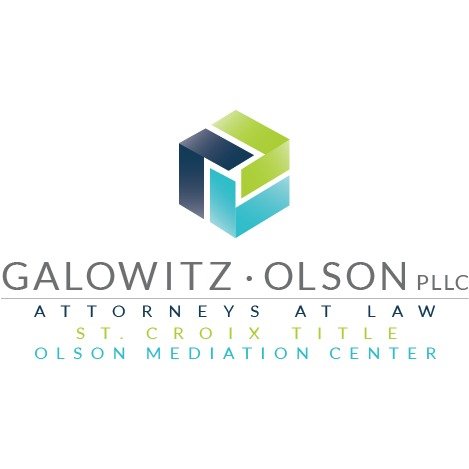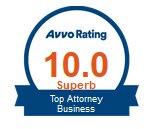Best Licensing Lawyers in Minnesota
Share your needs with us, get contacted by law firms.
Free. Takes 2 min.
Or refine your search by selecting a city:
List of the best lawyers in Minnesota, United States
United States Licensing Legal Questions answered by Lawyers
Browse our 1 legal question about Licensing in United States and read the lawyer answers, or ask your own questions for free.
- How do I legally protect my idea before selling or licensing it to a company?
- I have a makeup product idea that I want to sell or license, not the product itself. It is influenced by a product that was recently launched. Therefore, I want to sell/license to the company that launched said product. After some research, I contacted a patent attorney who explained that... Read more →
-
Lawyer answer by P.O OHIKHENA & Co
Good day,A patent will not be applicable since it's still an idea. You can go into an MOU(Memorandum of understanding) with the said company and also an NDA.You can contact me for my insight. Visit our profile and send us...
Read full answer
About Licensing Law in Minnesota, United States
Licensing law in Minnesota covers the rules and regulations governing the legal permissions required for individuals and businesses to carry out specific activities. These permissions range from professional licenses for occupations like lawyers, doctors, and contractors to business licenses for selling goods or providing services. Licensing ensures that individuals and companies meet the necessary qualifications, comply with safety and ethical standards, and operate within the boundaries of the law. The state, along with some counties and cities, manages these processes through various agencies responsible for issuing and regulating licenses.
Why You May Need a Lawyer
Legal assistance may be essential when dealing with licensing in Minnesota for several reasons. Common situations include:
- Applying for a new professional or business license and needing help understanding requirements.
- Dealing with the denial, suspension, or revocation of a license.
- Facing disciplinary actions or investigations related to a licensed activity.
- Appealing a licensing decision made by a Minnesota regulatory agency or board.
- Complying with changes in state or local licensing laws that impact your business or profession.
- Interpreting complex legal language in licensing statutes or regulations.
- Understanding background check or disclosure requirements in the application process.
A lawyer experienced in Minnesota licensing law can help protect your rights, guide you through legal procedures, and improve your chance of a positive outcome.
Local Laws Overview
Minnesota licensing laws are shaped by both state statutes and local ordinances. Most professional licensing is regulated at the state level through boards, such as the Minnesota Board of Medical Practice or Board of Nursing. Business licensing may involve multiple agencies, including the Minnesota Department of Revenue, Department of Labor and Industry, and the Secretary of State. Certain businesses, such as food establishments or childcare providers, require special permits and regular inspections.
Local governments, including cities and counties, may also require their own business licenses, regulatory approvals, or zoning permits. For example, opening a restaurant could require a state business license, a city food license, and county health department approval. Failing to obtain the necessary licenses can result in fines, closures, or criminal charges. Renewal periods, application fees, and compliance requirements vary depending on the license type and jurisdiction.
Frequently Asked Questions
What types of activities require a license in Minnesota?
Common activities requiring licenses include selling goods, serving food or alcohol, operating certain businesses, and working in regulated professions such as health care, construction, or real estate.
How do I apply for a professional license in Minnesota?
Most applications are submitted to the appropriate state licensing board or agency. Requirements may include education or training credentials, exams, background checks, and payment of fees.
What happens if my license application is denied?
You may have the right to appeal the denial. The appeals process typically involves requesting a hearing or providing additional information to address the reasons for denial.
Can my license be revoked or suspended?
Yes, if you violate laws or regulations, provide false information, or fail to maintain required standards, your license could be suspended or revoked. You may have a right to a hearing before action is final.
Do I need a separate license for each business location?
Often, yes. Many cities require a separate license for each address where regulated business activities take place. Check with your city or county for local requirements.
Are there criminal penalties for operating without a required license?
Yes, conducting certain activities without a valid license can result in fines, penalties, or criminal charges, depending on the license type and circumstances.
How can I verify a professional's license in Minnesota?
Most state agencies and boards provide online tools to look up license status and verify a professional's credentials.
Do licenses expire in Minnesota?
Yes, most licenses have expiration dates and must be renewed periodically. Renewal often requires proof of continuing education, fee payment, or updated information.
What should I do if I receive a notice of investigation regarding my license?
You should respond promptly and honestly. Consider consulting a lawyer immediately to protect your rights and prepare your response.
Is legal representation required to appeal a licensing decision?
Legal representation is not required, but it is highly recommended. Licensing laws and appeals procedures can be complex, and a lawyer can help present your case effectively.
Additional Resources
If you need more guidance or official information, consider contacting the following resources:
- Minnesota Department of Employment and Economic Development (DEED) - Business licensing guidance
- Minnesota Department of Labor and Industry - Occupational and trade licensing information
- Minnesota Board of Medical Practice - Licensing for health professionals
- Minnesota Secretary of State - Business registration and licensing
- Your local city or county office - Zoning and local business license requirements
- Legal Aid organizations - Assistance for those who qualify based on income
- Minnesota State Bar Association - Lawyer referral services
Next Steps
If you need legal assistance with a licensing matter in Minnesota, start by identifying the type of license and the agency or board responsible. Gather all related documents, such as application forms, correspondence, and any notices you have received. Consider consulting a lawyer who specializes in licensing law. You can find lawyers through the Minnesota State Bar Association or by using referral services offered by legal aid organizations. Acting quickly can be important, especially if you face deadlines or enforcement actions. A lawyer can help you understand your rights, prepare an effective strategy, and represent you in negotiations or hearings with licensing authorities.
Lawzana helps you find the best lawyers and law firms in Minnesota through a curated and pre-screened list of qualified legal professionals. Our platform offers rankings and detailed profiles of attorneys and law firms, allowing you to compare based on practice areas, including Licensing, experience, and client feedback.
Each profile includes a description of the firm's areas of practice, client reviews, team members and partners, year of establishment, spoken languages, office locations, contact information, social media presence, and any published articles or resources. Most firms on our platform speak English and are experienced in both local and international legal matters.
Get a quote from top-rated law firms in Minnesota, United States — quickly, securely, and without unnecessary hassle.
Disclaimer:
The information provided on this page is for general informational purposes only and does not constitute legal advice. While we strive to ensure the accuracy and relevance of the content, legal information may change over time, and interpretations of the law can vary. You should always consult with a qualified legal professional for advice specific to your situation.
We disclaim all liability for actions taken or not taken based on the content of this page. If you believe any information is incorrect or outdated, please contact us, and we will review and update it where appropriate.
Browse licensing law firms by city in Minnesota
Refine your search by selecting a city.









